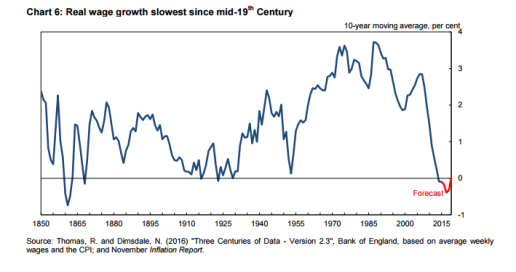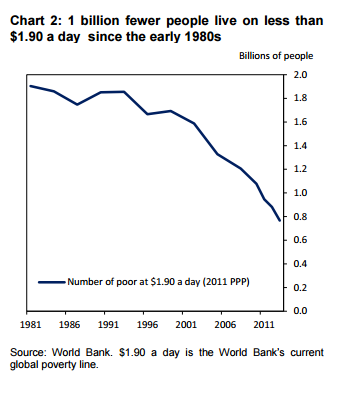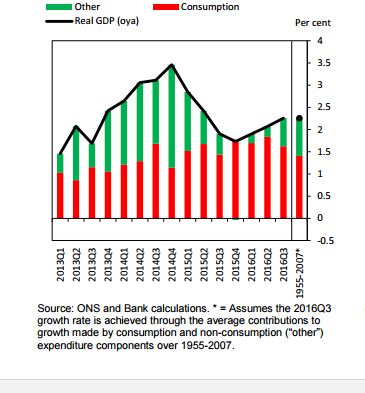Mark Carney is the governor of the Bank of England. Formerly the head of the central Bank of Canada, some years ago he was headhunted to take over at the BoE on a huge salary and expenses.
This week he gave the Roscoe Lecture at Liverpool’s John Moores University, his first speech since the decision of the Brits to vote (narrowly) to leave the European Union. Carney took the opportunity to offer what his view of the state of global capitalism. And he does not make it sound good. speech946
Carney pointed out that since the global financial crash of 2008, average real incomes in Britain have taken the biggest plunge since the 1860s, when “Karl Marx was scribbling in the British Library.” And “it was the poorest (who) are hit the hardest. During recessions the lower-skilled, lower paid people tend to lose their jobs first.”
However, Carney was at pains to claim that capitalism has worked for people: “global markets and technological progress has lifted more than a billion people out of poverty, while a series of technological advances have fundamentally enriched our lives….. global markets and technological progress has lifted more than a billion people out of poverty, while a series of technological advances have fundamentally enriched our lives He added “Globally, since 1960, real per capita GDP has risen more than two-and-a-half times, average incomes have begun to converge and life expectancy has increased by nearly two decades.”
What he did not say in this praise of this record of capitalism is that the majority of that one billion lifted out of deep poverty were in China, an economy that eschews ‘free markets’ and ‘globalisation’; and goes for state investment, capital controls and the direct submission of the private sector to the regime. Life expectancy may have risen due to investment in public services and healthcare. Capitalism and free markets have played no role in that. In the ‘free markets’, most of the very poor in other countries remain poor. Indeed, the policies of the central bankers, the IMF and the World Bank in driving for ‘globalisation’ and ‘free trade’ have made the lot of these poor even worse, not better.
Per capita incomes may have risen (again mainly due to China and to a lesser extent, India, in the equation), but those incomes have not been equally increased. As Carney admitted in his speech “globalisation is associated with low wages, insecure employment, stateless corporations and striking inequalities.” In Anglo-Saxon countries, the income share of the top 1% has risen notably since 1980. Today, in the US, the richest 1% of households receive 20% of all income. Such high income inequalities are dwarfed by staggering wealth inequalities. The proportion of the wealth held by the richest 1% of Americans increased from 25% in 1990 to 40% in 2012. Globally, the share of wealth held by the richest 1% in the world rose from one-third in 2000 to one-half in 2010. And now “a typical millennial earned £8,000 less during their twenties than their predecessors.”
Carney criticised mainstream economics: “Amongst economists, a belief in free trade is totemic. But, while trade makes countries better off, it does not raise all boats; in the clinical words of the economist, trade is not Pareto optimal. Rather the benefits from trade are unequally spread across individuals and time….. Some workers, however, lose their jobs and the dignity of work, or see their “factor prices” – in plain English, wages – equalised downwards.” Perhaps Carney had been reading Marx’s scribbles after all – as this was close to scribbler’s view of free trade under capitalism – uneven and combined development.
But if capitalism has been successful over the last 50 years, according to Carney, what about the last ten? “To put it mildly, the performance of the advanced economies over the past ten years has consistently disappointed. …It doesn’t it feel like the good old days, because anxiety about the future has increased, productivity hasn’t recovered and real wages are below where they were a decade ago, something that no-one alive today has experienced before
No wonder, Carney concluded that “the public is complaining about low wages, insecure employment, stateless corporations and striking inequalities.” He admitted that mainstream economics and policies had failed the majority. “Economists must clearly acknowledge the challenges we face, including the realities of uneven gains from trade and technology”, he said.
Why have things gone so wrong? Don’t we need to know? We do, said Carney, “because any doctor knows that the importance of diagnosing the underlying causes of the patient’s symptoms before administering the cure.” Unfortunately, Carney does not know the cause: “The underlying reasons for the 16% shortfall of the UK’s productive capacity, relative to trend, are poorly understood.”
But we must try. Carney listed three priorities: “Economists must clearly acknowledge the challenges we face, including the realities of uneven gains from trade and technology” “We must grow our economy by rebalancing the mix of monetary policy, fiscal policy and structural reforms. We need to move towards more inclusive growth where everyone has a stake in globalisation.” This wish list has as much chance of surviving as the proverbial snowball in the fires of hell.
But no matter, Carney was much more concerned to convince his Liverpool audience that if it had not been for the easy money policies of the Bank under his direction, things would be even worse in the UK – although given the stats he presented, that was hardly convincing. “Monetary policy has been keeping the patient alive, creating the possibility of a lasting cure through fiscal and structural operations,” he said, adding, “monetary policy isn’t a spectre, but a friendly ghost”. But then he delivered a health warning about easy money. It leads to a consumer boom and that never provides sustained economic growth which depends on investment. “The UK expansion is increasingly consumption-led. The saving rate has fallen towards historic lows and borrowing has resumed. Evidence from the past quarter century across a range of countries suggests episodes of consumption-led growth tends to be both slower and less durable. This is because consumption growth eventually outpaces earnings growth, increasing debt and making demand more sensitive to changes in employment and income.” The relative boom in the British economy (ie 2%-plus economic growth) won’t last.”
It was up to governments now to turn things round. But given that Carney and his bank economists did not know why things had got so bad, he offered no real advice to governments on how to get productivity up, inequality down and real incomes restored.
Next year is the 150th anniversary of the publication of Marx’s Capital Volume One, the product of the ‘scribblings’ that Marx was making in the British Museum in the 1860s. Perhaps Carney should have read them to see why things are so bad and what to do about it.



Describing Stalinist China as not capitalist but as “an economy that eschews ‘free markets’ and ‘globalisation’; and goes for state investment, capital controls and the direct submission of the private sector to the regime.” is being–at best–blind to the reality of contemporary monopoly capitalism in its Rooseveltian/Hitlerian/Trumpian forms as state monopoly capitalism and its Stalinist/Maoist/Dengist forms as monopoly state capitalism. At worst it’s a vulgar apology for Stalinism in all its forms as “noncapitalist.”
if you actually studied the history and economics of the period of the USSR in the 30’s to mid 50’s, you would understand that it was fully socialist.
This has nothing to do with your belief (simply bourgeois propaganda) that Stalin held everyone in GULAGs and personally murdered trillions of children.
Taking the middle road here,
When the Berlin Wall came down I presume they were overthrowing something and replacing it with something else. Is Shane saying they replaced State Capitalism with State Monopoly Capitalism? Or did they in fact not overthrow anything?
It wasn’t just bourgeois propaganda that attacked Stalinism if memory serves me correct Nikita Khrushchev denounced Stalin at the twentieth congress of the Communist Party of the Soviet Union?
I am not sure what game Carney and by extension the ruling class are playing here. Clearly no one is railing against capitalism. The immigrant fearing Tories are in power in the UK and a Billionaire immigrant bashing capitalist has been voted in the USA, narrowly beating a wall street lackey. Some rejection of capitalism!
Maybe he has been reading too much Marx or maybe there is another agenda here. I suspect we are being softened up for something!
Edgar writes: “It wasn’t just bourgeois propaganda that attacked Stalinism if memory serves me correct Nikita Khrushchev denounced Stalin at the twentieth congress of the Communist Party of the Soviet Union?” It is true that Khrushchev denounced STALIN. But he made no denunciation of STALINISM. Within eight months he had invaded Hungary to reimpose the Stalinist regime that the Hungarian workers had overthrown, and then proceeded to his own version of the Stalin purge trials with the execution of Imre Nagy, Pal Maleter, and other communists. And Khrushchev’s successor, Gorbachev, explicitly endorsed Stalin and slandered his opponents in his speech on the seventieth anniversary of the Russian Revolution. Moreover, how could “bourgeois propaganda” have been “attacking Stalinism” when it was using Stalin to smear socialism by totally accepting the central doctrine of Stalinism: that “Socialism” had been stablished in that “Single Country” called USSR?
Shane, that part of my comment was in response to socialist’s specific comment.
You ask how “bourgeois propaganda” could have been “attacking Stalinism” when it was using Stalin to smear socialism, well the simple answer to that is bourgeois propaganda was attacking Stalinism to smear socialism!
The first paragraph was directed at you?
My point was that attacking “Stalin” had and has nothing to do with attacking Stalinism. The current propaganda against Tsar Vladimir has nothing to do with propaganda against Tsarism, as shown by the total Western compaisance with his panegyric to ‘Vladimir The Great.”
So what was overthrown when the USSR collapsed. I presume nothing much would be your answer?
“as shown by the total Western compaisance with his panegyric to ‘Vladimir The Great.””
We are clearly not reading the same bourgeois propaganda if I can even understand what that meant!
So you can understand:
The Guardian
From one Vladimir to another: Putin unveils huge statue in Moscow
President hails controversial monument and calls on Russians to unite to face external threats as his namesake did
There is now a Vladimir inside the Kremlin and one standing just outside.
On Friday, the Kremlin’s current incumbent, Vladimir Putin, unveiled a monument a stone’s throw from its gates to Prince Vladimir the Great, calling on Russians to unite to face external threats as his namesake did a millennium ago.
The 17-metre monument(56ft) monument to Vladimir, the 10th-century ruler of Kievan Rus who adopted Orthodox Christianity for his people, has caused controversy….
Vladimir is best known for his adoption of Orthodox Christianity in 988.
“He laid the moral foundation on which our lives are still based today. It was a strong moral bearing, solidarity and unity which helped our ancestors overcome difficulties and win victories for the glory of the fatherland, making it stronger and greater with each generation,” Putin said at the unveiling.
“Today it is our duty to stand together against contemporary challenges and threats, using our spiritual legacy and our invaluable traditions of unity to go forward and continue our thousand-year history.”
The Vladimir statue is the latest in a flurry of recent memorialisations in Russia. Last month a monument to the 16th-century tsar Ivan the Terrible was unveiled in the town of Oryol, prompting a nationwide debate over the role of the monarch, who killed his own son and set up a ruthless personal guard to terrorise his internal enemies, but also expanded Russia’s borders.
Mark Carney was governor of the Bank of Canada, not CEO of the Royal Bank of Canada–vital difference!
yep – corrected
The compilation of the $1-90 is being criticised meaning far fewer workers outside China have benefited from globalisation. China is a capitalist economy. The law of value in modified form dominates there. The consequence of this is that a debt crisis cannot be avoided only delayed.
Minor point: Mark Carney was governor of the Bank of Canada before joining the B of E. He never, to my knowledge, worked at the Royal Bank of Canada, the country’s largest commercial bank, as stated above.
whoops! Thanks corrected.
Marx was working on a British museum?
Nevertheless, It would be interesting to see data on the consumer savings , consumer debt and consumption worldwide.
And at the same time look at income growth of laborers.
Shane Mage – your views coincide with mine, or more precisely those of the Internationalist Communist Tendency. I recommend this and perhaps you will find a political home. If not please give us a critique, it would be appreciated.
Click to access 2013-10-20-for-communism.pdf
China eschews globalisation?? The Chinese government just knocked down a British move to rethink the £18bn Hinkley nuclear reactor project, of which China General Nuclear Power holds about a one-third interest and which France’s EDF is to build.
Actually, this: “What he did not say in this praise of this record of capitalism is that the majority of that one billion lifted out of deep poverty were in China, an economy that eschews ‘free markets’ and ‘globalisation’; and goes for state investment, capital controls and the direct submission of the private sector to the regime. Life expectancy may have risen due to investment in public services and healthcare. Capitalism and free markets have played no role in that. ”
is, to put it mildly, problematic– or, less mildly, just not accurate. China does not eschew globalization, since its expansion has been the direct result of an explicitly cheap labor policy designed to attract foreign direct investment, a trillion dollars of which has flowed into China.
State investment? Sure thing, but of course it is the specific areas of “state investment” that are beset with overproduction, that, in the 1990s, the government more or less gutted during its economic contraction, and which it now is attempting, after “consolidation” and “corporatization” with the help of US investment banks, to keep alive with credit schemes worthy of Andrew Fastow (he of Enron fame).
Robert, please, answer my email!
I think I shall send Mr Carnegie a copy of this pamphlet, produced by workers for workers, in the hope that it will bring an end to his confusion.
https://www.worldsocialism.org/spgb/pamphlets/marxian-economics